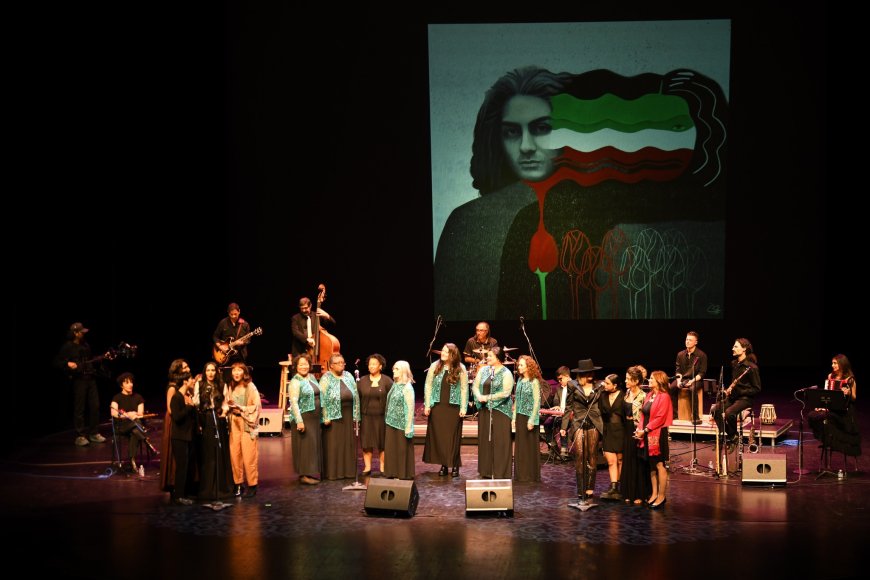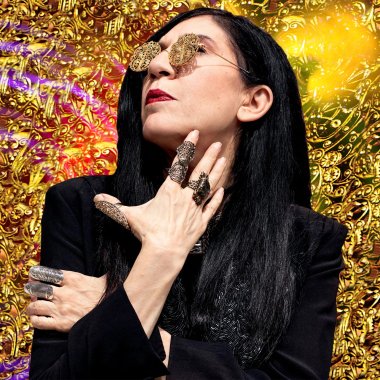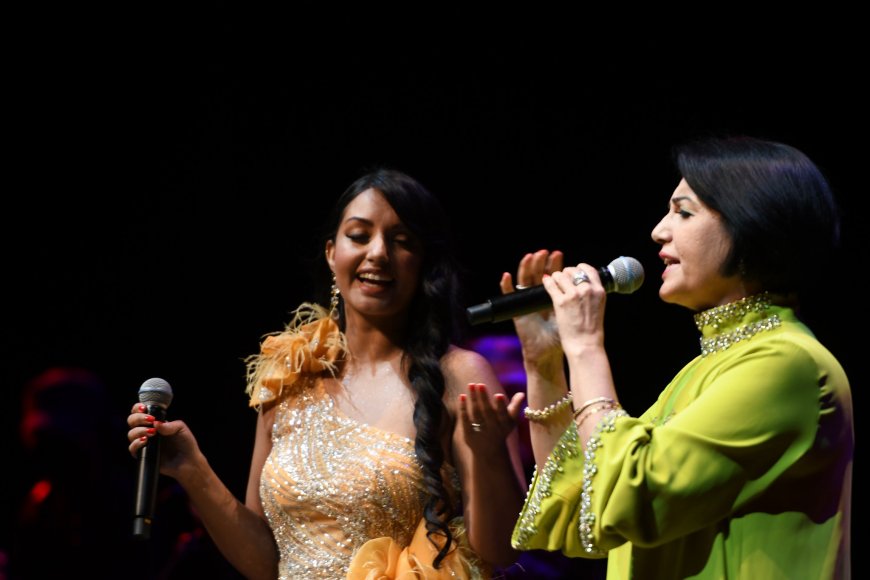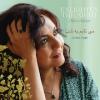
Nazy Kaviani longs for the day when her flagship concert series is obsolete.
As the founder and director of the East Bay performing arts presenter Diaspora Arts Connection (DAC), she created the singular annual showcase Let Her Sing, a stylistically omnivorous program featuring female vocalists with roots in cultures that suppress or criminalize women singing in public.
Returning to the Yerba Buena Center for the Arts’ Blue Shield of California Theater on Sept. 13 and continuing in Los Angeles at Colburn School’s Zipper Hall on Sept. 14, the program features a diverse roster of eight women rooted in classical Persian music, Afghan folk songs, Iranian pop, contemporary classical music, and Kurdish laments.
“We aren’t just ethnic,” said Kaviani, who was born and raised in Tehran. “We have a message for everybody in the U.S. I’m Iranian, but I feel responsible for other minorities who have little representation in the public sphere: Afghans, Syrians, and Kurds.”

Let Her Sing’s special guest is Sussan Deyhim, a polymathic artist who emerged as a creative force on the New York scene in the early 1980s. A composer, vocalist, sound designer, and performance artist, she’s played a leading role in combining cutting-edge technology with Middle Eastern modes to create expansive soundscapes suffused with mysticism. Kaviani has been trying to get her involved in Let Her Sing for several years, but her far-flung projects have made scheduling a challenge.
“Sussan is one of the first Iranian diaspora artists to really make an impact in the West,” Kaviani said. “When she came, there was hardly any infrastructure, and she was in a clique with visual artist Shirin Neshat. But the first time I really became aware of her work was with Bobby McFerrin in the 1990s.”
Let Her Sing also features San Jose-based, Iranian-born soprano Golrokh Aminian, who’s carved out a niche performing beloved operatic arias in Farsi, and Afghan American artist Meghan Kabir, a songwriter responsible for songs recorded by hitmakers like Sabrina Carpenter and Selena Gomez (while also maintaining close ties to her ancestral music). Contributing a completely different sound, there’s the electronic dance music artist Xye, who hails from a Greek, Russian, and Armenian background, and Iranian American multi-instrumentalist and producer ASADI — the only male performer in the program.
Most of the women will be accompanied by the Let Her Sing house band, directed by drummer Yahya Alkhansa. The production features visual storytelling shaped by designer Navid Ghaem Maghami, and Los Angeles-based filmmaker Sarah Chang Tadayon returns as emcee. The artists gather during the week preceding the performances to forge new creative connections with each other and hone the arrangements with the house band.
Launched in 2017, Let Her Sing introduces local audiences to illustrious artists living in the Bay Area who are often largely unknown outside of their communities. It’s led to some supremely powerful moments, like the 2021 concert featuring revered singer Farida Mahwash, the first Afghan woman ever awarded the honorific title Ustad (in recognition of her vocal mastery). The performance came in the wake of the Taliban’s reconquest of Afghanistan, which led to draconian restrictions on women.
Kurdish vocalist Evin Şah, one of this year’s featured artists, grew up in Turkey and saw her career flourish after state restrictions on Kurdish-language broadcasts eased about 14 years ago. She worked steadily dubbing feature films and television series, which often used her songs in their soundtracks. Relocating to the Bay Area six years ago with her husband, Şah has introduced local audiences to an ancient Kurdish song form called dengbêj, which was traditionally performed by traveling men at celebrations like weddings and has now evolved into an outlet for women to share stories of loss, love, and reunions.

“You are telling your story about a woman who lost her son, maybe somebody killed him, or her parents didn’t let her marry her love,” Şah said.
She’s at work on an album of Kurdish songs for children and is eager to collaborate cross-culturally with other artists. While facilitating these local connections is one of Kaviani’s motivations, she’s also very much responding to a national climate that has turned frosty for immigrants and travelers from abroad. Two women she hoped to present, who were traveling on Iranian passports, were denied visas.
“I want people to know that immigrants bring so much to this country,” Kaviani said. “On the national stage, we’re being demonized and vilified to the point of feeling really unwelcomed. More than ever, immigrants make further contributions [beyond the] workforce. We make cultural contributions. We care about things. We sing, dance, make plays, write books, and make films.”




